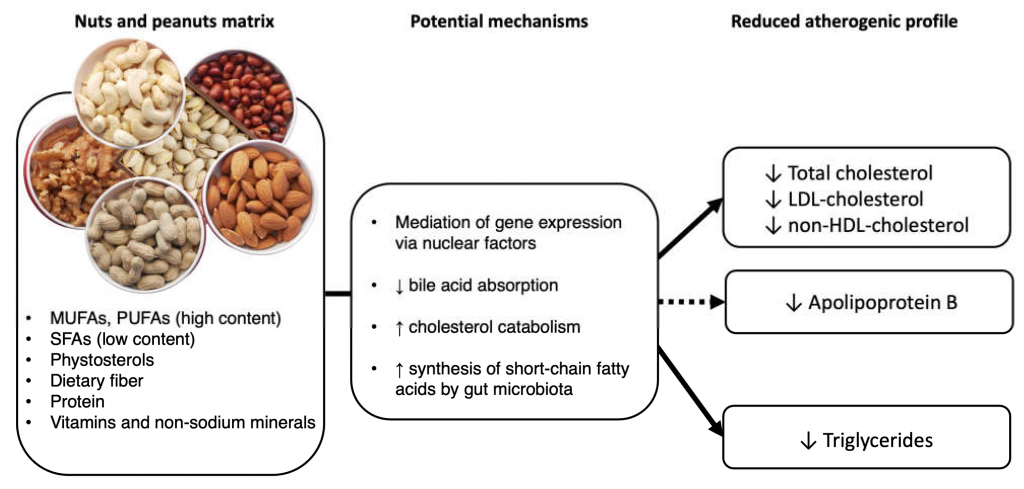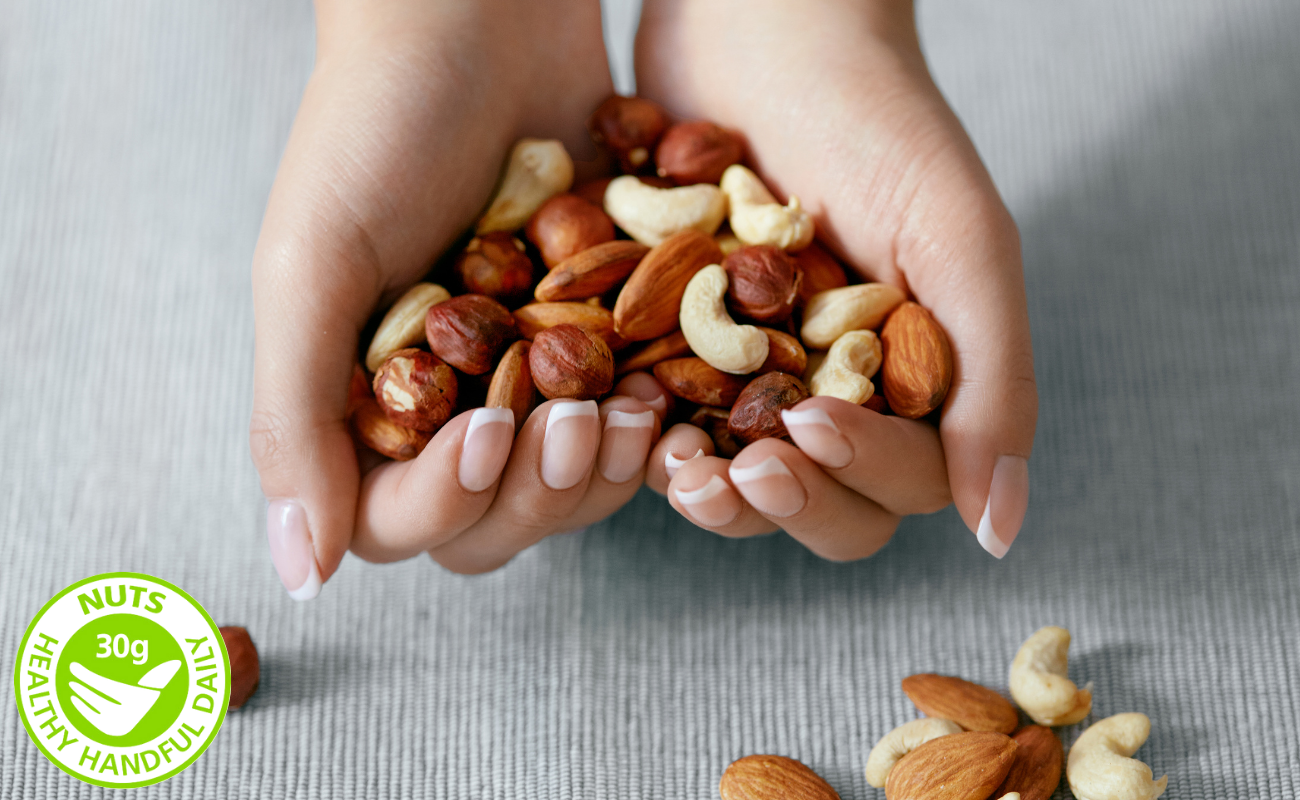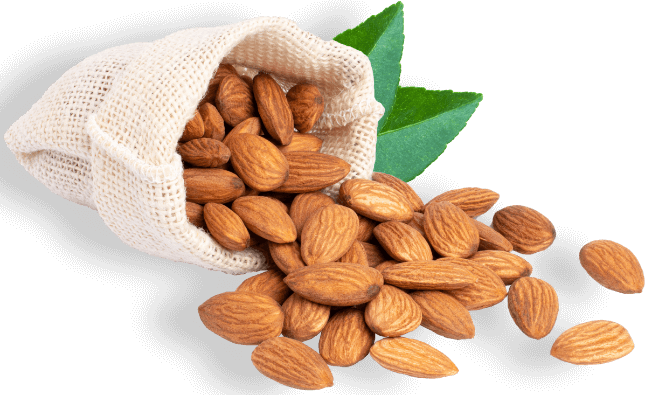This article has been republished from Nuts for Life. Read the original article.
A major new review on nuts and blood lipids has shown significant reductions in total cholesterol, low-density lipoprotein (LDL, or ‘bad’) cholesterol, and triglycerides, with nut consumption (1).
The research update examined the findings of 19 previously-published papers, of the best type of evidence (systematic reviews and meta-analyses of randomised controlled trials).
It found a consistent beneficial effect of most nuts (that is, total nuts and specific nut types, including walnuts, almonds, cashews, peanuts, and pistachios), across meta-analyses in:
↓ total cholesterol (mean difference: −0.09 to −0.28 mmol/L),
↓ LDL-cholesterol (mean difference: −0.09 to −0.26 mmol/L), and
↓ triglycerides (mean difference: −0.05 to −0.17 mmol/L).
It also noted preliminary evidence that adding nuts into the regular diet reduces blood levels of apolipoprotein B (a protein that helps carry fat and cholesterol in the body), improves HDL (good) cholesterol function, and may be linked with a reduced number of (harmful) small, dense LDL particles.
The study authors point out that the major factor in the cholesterol-lowering effect appears to be nut dose, rather than nut type – with evidence suggesting that nuts ‘dose-dependently’ improve lipids and lipoproteins.
Unhealthy levels of one or more kinds of lipids in the blood – such as elevated cholesterol, LDL-cholesterol, or triglycerides, decreased HDL-cholesterol, or other lipoprotein disturbances – is termed ‘dyslipidemia’. It’s a well-known risk factor for cardiovascular disease (CVD), a leading cause of death worldwide.
Nuts For Life
How do nuts benefit blood lipid levels?
The study authors say nut consumption improves blood lipid profiles by multiple mechanisms. The favourable fatty acid profile of nuts is a key factor, but other nut components, also play a role.
Nuts provide unsaturated fats (mono- and poly-unsaturated fatty acids), dietary fibre, phytosterols, polyphenols, minerals (including potassium, calcium, and magnesium), and vitamins (such as folate and vitamin E).
Nuts For Life
In isolation, the researchers report that these nutrients and bioactive compounds may have a modest effect. But when they combine, or work together, in the unique food ‘matrix’ of nuts, they more powerfully impact blood lipid and lipoprotein levels.
Figure: Potential mechanisms by which nuts reduce atherogenic lipid/lipoprotein profiles

Source: Figure 1 in Guasch-Ferré, M., et al. Effects of nut consumption on blood lipids and lipoproteins: A comprehensive literature update. Nutrients, 2023. 15:596.
Did you know? More than 60 human dietary intervention studies have been conducted investigating the effects of nut consumption on blood lipid levels.
Nuts For Life
Nuts: Lowering the risk of CVD
Another major review of the evidence (2), published in 2022, concluded that eating a handful of nuts a day, compared to eating no nuts, was linked with a:
21% reduced risk for CVD
25% reduced risk for coronary heart disease (CHD)
22% reduce risk of death from CVD.
Overall, the health benefits were similar across different types of nuts.
The bottom line:
While more research is needed to better understand the exact mechanisms behind the heart health benefits of nuts, the evidence supports dietary recommendations to eat a handful (30g) of nuts a day. Nut consumption, as part of a healthy diet, improves cardiovascular risk factors and helps to reduce the risk of CVD.
Did you know? Nuts, along with other plant foods such as whole grains, vegetables, fruits, legumes and seeds, are key components of recommended healthy dietary patterns, such as the Mediterranean diet.
Nuts For Life
References
- Guasch-Ferré, M., et al. Effects of nut consumption on blood lipids and lipoproteins: A comprehensive literature update. Nutrients, 2023. 15:596.
- Balakrishna, R., et al. Consumption of nuts and seeds and health outcomes including cardiovascular, diabetes and metabolic disease, cancer, and mortality: An umbrella review. Advances in Nutrition, 2022. nmac077, https://doi.org/10.1093/advances/nmac077





